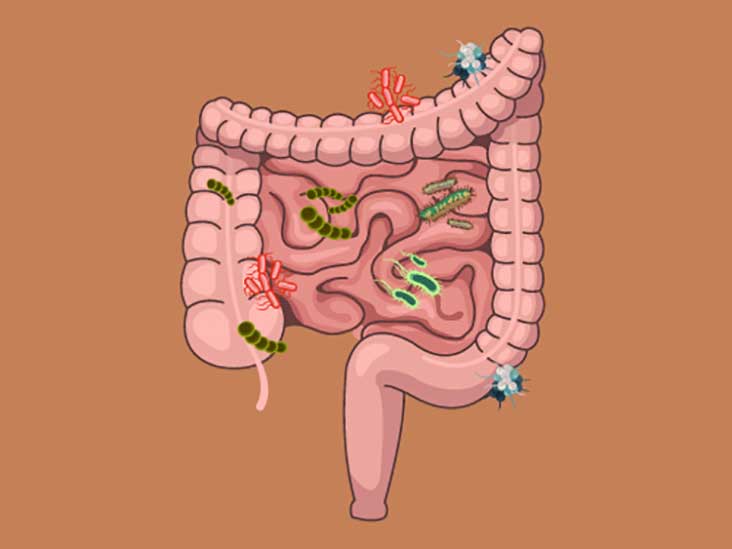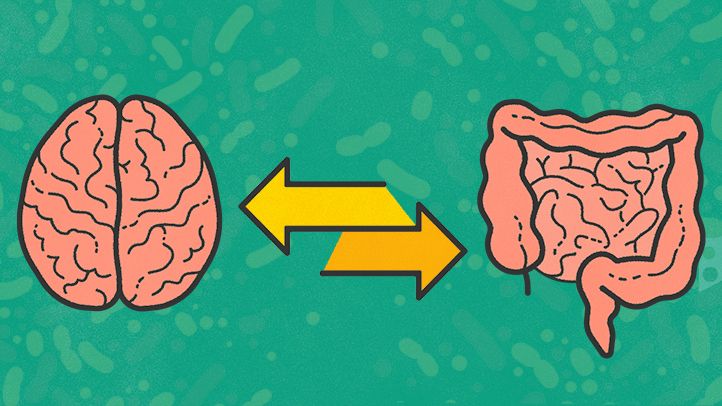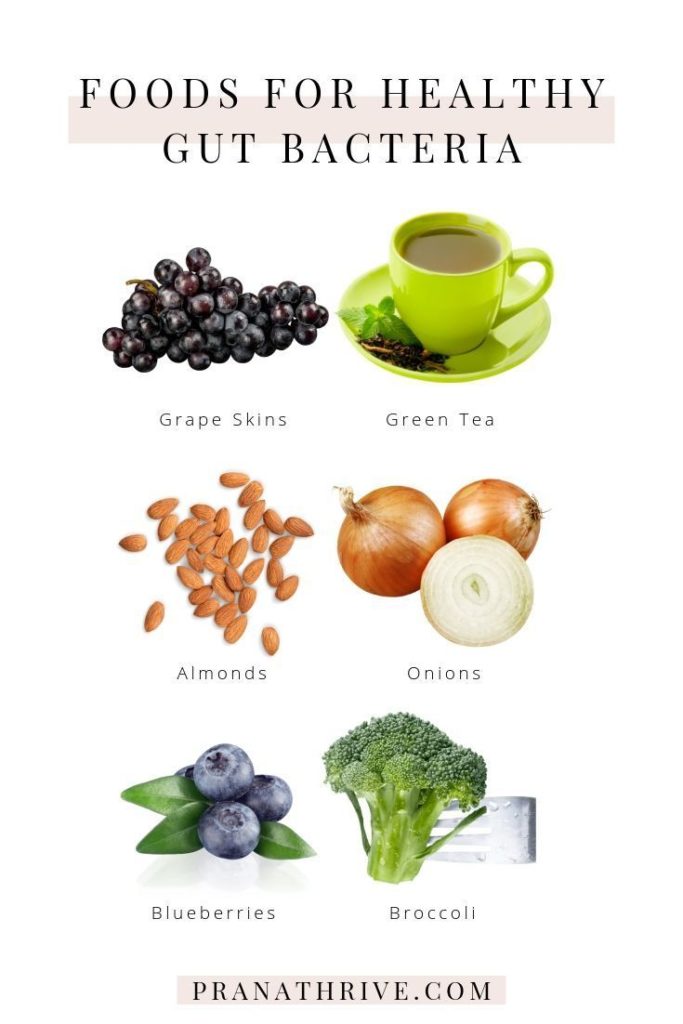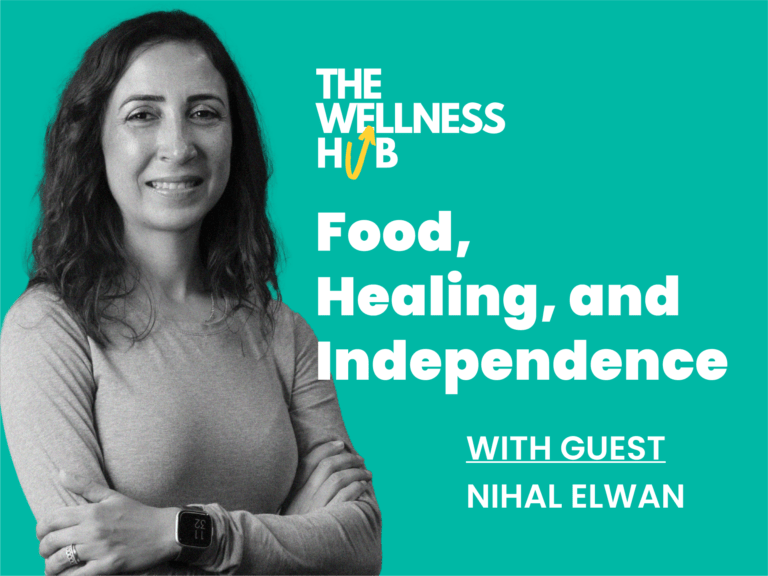Gut health has become a large concern among health and wellness experts in all areas, and the importance of a healthy gut seems to be more and more significant for overall health.
As research in this area evolves it is clear that gut health has more diverse functions in the body than simply digestion, and that it may be one of the most important factors in many health aspects from proper energy metabolism to brain function and immunity.
Let’s take a look into what the gut is and why it matters to our health
What exactly is the gut?
When we talk about the gut we are referring to a complex ecosystem that works synergistically to carry out functions that are essential to the body’s survival.
What we call “the gut” is basically the entire gastrointestinal tract (GI tract for short) and the living organisms that reside in it.
GI tract: The GI tract encompasses all of the moving parts from the moment we ingest food to the moment we eliminate waste. This includes key organs like the mouth, esophagus, stomach, liver, pancreas, small and large intestines, and rectum.
Gut Microbiota: The entire system of organs and cavities in the GI tract is colonized by billions of microscopic creatures known as the gut flora or gut microbiome. These include bacteria, fungi, and archaea.
Our bodies are inoculated with these microscopic organisms from birth, and they play a large role not only in digestive processes, but also in immunity, brain function, and mood changes.
The gut’s main functions
The role that our guts play in our overall health is quite significant, and modern medicine is paying more and more attention to gut health as a crucial source of preventative care and health-oriented goals.
To understand how the state of our guts can affect different aspects of health, it is important to first look at some of its main functions: Digestion, immunity, and brain function. (It is important to state that this is by no means an exhaustive list of the gut’s functions. The nuance and complexity of this system extends further than this article.)
Digestion and nutrient absorption
In each step along the GI tract, food gets broken down into smaller pieces, metabolized by enzymes, and reduced to a form that allows our body to use it for energy. Micronutrients like vitamins and minerals are released and absorbed into the bloodstream, and any waste material is separated to be eliminated.

The physical lining of the gut ensures that food travels through the appropriate channels and moves along in a timely manner. Some parts of the digestive system (like the esophagus and intestines) even support this movement by autonomic contractions of the gut lining known as peristalsis.
This gut lining, especially in the small intestine, is also responsible for allowing necessary nutrients and compounds to be absorbed into the blood stream so that our bodies can use them for energy, tissue building, and other metabolic processes.
The gut microbiota also plays a key role in digestion through fermentation of carbohydrates into useful sources of energy, synthesis of vitamins (mostly vitamin K and B), and supporting the metabolism of lipids (fats and oils). [1]
Immunity
The gut works as a main source of immune protection against foreign elements. It does this through both mechanical and biochemical processes.
The tissue lining in the GI tract is known as the gut barrier. When healthy, the gut barrier creates a mechanical barrier that keeps all toxins and undigested food from leaking into the bloodstream.
Any leakage of unwanted material outside of the gut lining can cause the immune system to respond and attack any foreign compounds, and if untreated it can cause severe immune reactions that can lead to many chronic conditions. This dysfunction in the gut lining is known as leaky gut syndrome.
The gut microbiome also plays a role in immune defence by producing antimicrobial components that can help fight the spread and growth of unhealthy bacteria. [2] An overgrowth of bacteria or yeast in the gut can also contribute to a leaky gut.
Brain function and mood
Recent research has observed a direct connection between gut microbiome activity and nervous system processes including emotional regulation, stress and pain responses, and neurotransmitter movement.
This mutual interaction between brain and gut is known as the brain-gut connection or gut-brain axis.

This brain-gut connection is a bilateral relationship, meaning that any changes in the gut will affect the CNS and vice versa. This is why stress-related issues can have such a significant effect on gut functioning, and why a poor gut environment can lead to mood disorders like anxiety and depression.
Multiple studies done on lab rats have shown a direct relation between gut microbiome changes and psychological activity including emotional behaviour, learning and memory retention, and social interactions. [3]
Experts have also observed a connection between gut microbiome states and disorders of the nervous system and cognitive functioning like ADHD (attention deficit and hyperactivity disorder), ASD (autism spectrum disorder), Alzheimer’s disease, and Parkinson’s disease.
Common gut health issues
There are plenty of things that can go wrong with our gut and all lifestyle aspects from nutrition to stress management can play a role in our gut health.
There are however two main issues regarding the gut that can significantly affect our overall health: Leaky gut and dysbiosis.
Leaky Gut
Leaky gut refers to a gut lining — specifically that of the small intestine — become permeable due to constant irritation. When this lining is damaged, the barrier between the gut and the bloodstream is no longer fully functional. The walls that separate the two develop leaks that allow undigested food compounds seep into the bloodstream.
This leak of compounds into the bloodstream can generate an immune response to fight the undigested food that the system does not recognize in the bloodstream. The more compounds leak out of the gut, the heavier the response, not to mention toxicity levels in the body.
These immune responses generate high levels of systemic inflammation, which is a root cause of many chronic conditions.
Dysbiosis
Dysbiosis refers to the lack of healthy levels of gut flora or a disbalance in gut bacteria.
This can happen due to many different reasons including antibiotic use, overgrowth of unhealthy bacteria or yeast (often caused by lack of healthy bacteria), and lifestyle issues such as poor diet, excessive stress, and alcohol abuse.
The lack of healthy levels of gut bacteria can lead to multiple issues from digestive difficulties all the way up to chronic conditions. As mentioned earlier, dysbiosis can be a factor in developing a leaky gut, which is when our gut health can really start to get us into trouble in other aspects of our health, especially our immune health.
How to care for your gut?
After this brief introduction to your gut, you might be wondering what are some ways to support and take care of it.
The rules to a healthy gut can be summarized in a few key points:
Eating real, healthy foods

Healthy gut bacteria thrives on real, fresh food. Varied vegetables, legumes, and fruit are great sources of food for our gut flora.
Fermented products like sauerkraut, yogurt, kefir, and kombucha often have healthy live probiotics that can strengthen your gut flora population, as well as nutrients that also help them thrive.
Unhealthy gut bacteria thrive on refined sugar, and simple carbohydrates (added sugars, sweets, desserts, syrups, etc.). Limiting the amount of sugar you consume can support your gut microbiome and keep it balanced.
Processed and refined foods can affect our microbiome and irritate our gut lining when consumed often. Limiting processed foods (even those under the “health food” section) is often a good idea.
Add greens to your meals.
Avoiding antibiotics if possible
Antibiotics are powerful agents and can really get us out of trouble in acute situations. But when over-prescribed (which happens often) or taken for extended periods of time they can really wreak havoc on our gut microbiome.
Antibiotics kill all microbes, good or bad, so they inevitably lead to some level of dysbiosis. Avoiding any unnecessary use of antibiotics when more natural remedies are feasible can save your gut microbiome from a lot of harm.
However, sometimes antibiotic use is necessary. In this case having a supplement regime with probiotics is important in order to minimize damage.
In either one of these cases always consult a healthcare professional to decide what your best option is and how to support your gut through any treatment.
Reducing stress
As mentioned above, the brain and gut are directly related. Chronic stress has been shown to affect our gut flora levels for the worse which can leave us prone to unhealthy bacteria colonizing our systems.
Practicing stress reduction techniques can train our systems into better regulation paths which can save us from unbalancing our gut microbiome (as well as many other stress induced ailments).
Be sure to read our article on chronic stress to learn what you can do to mitigate it.
The bottom line
We might at first glance think of the gut and digestive system as just the structure that processes what we eat, but the truth is that our guts are at the very center of our overall health and have a huge impact on our physical and mental wellbeing.
Taking care of our gut and keeping it in good shape can help us prevent and even reverse a plethora of ailments and debilitating conditions.
Overall, a healthy gut makes a healthy body, so paying attention to our gut health should be a top priority in our self-care practices.





